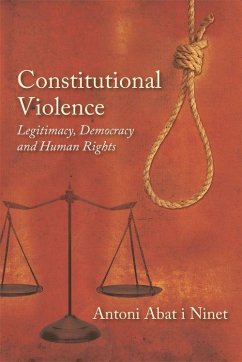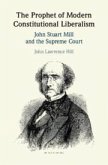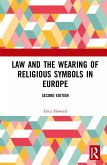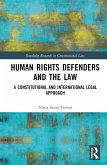If constitutional legitimacy is based on violence, what does this mean for democracy? Almost every state in the world has a written constitution and, for the great majority, the constitution is the law that controls the organs of the state. But is a constitution the best device to rule a country? Western political systems tend to be 'constitutional democracies', dividing the system into a domain of politics, where the people rule, and a domain of law, set aside for a trained elite. Legal, political and constitutional practices demonstrate that constitutionalism and democracy seem to be irreconcilable. Antoni Abat i Ninet strives to resolve these apparently exclusive public and legal sovereignties, using their various avatars across the globe as case studies. He challenges the American constitutional experience that has dominated western constitutional thought as a quasi-religious doctrine. And he argues that human rights and democracy must strive to deactivate the 'invisible' but very real violence embedded in our seemingly sacrosanct constitutions.
Hinweis: Dieser Artikel kann nur an eine deutsche Lieferadresse ausgeliefert werden.
Hinweis: Dieser Artikel kann nur an eine deutsche Lieferadresse ausgeliefert werden.








